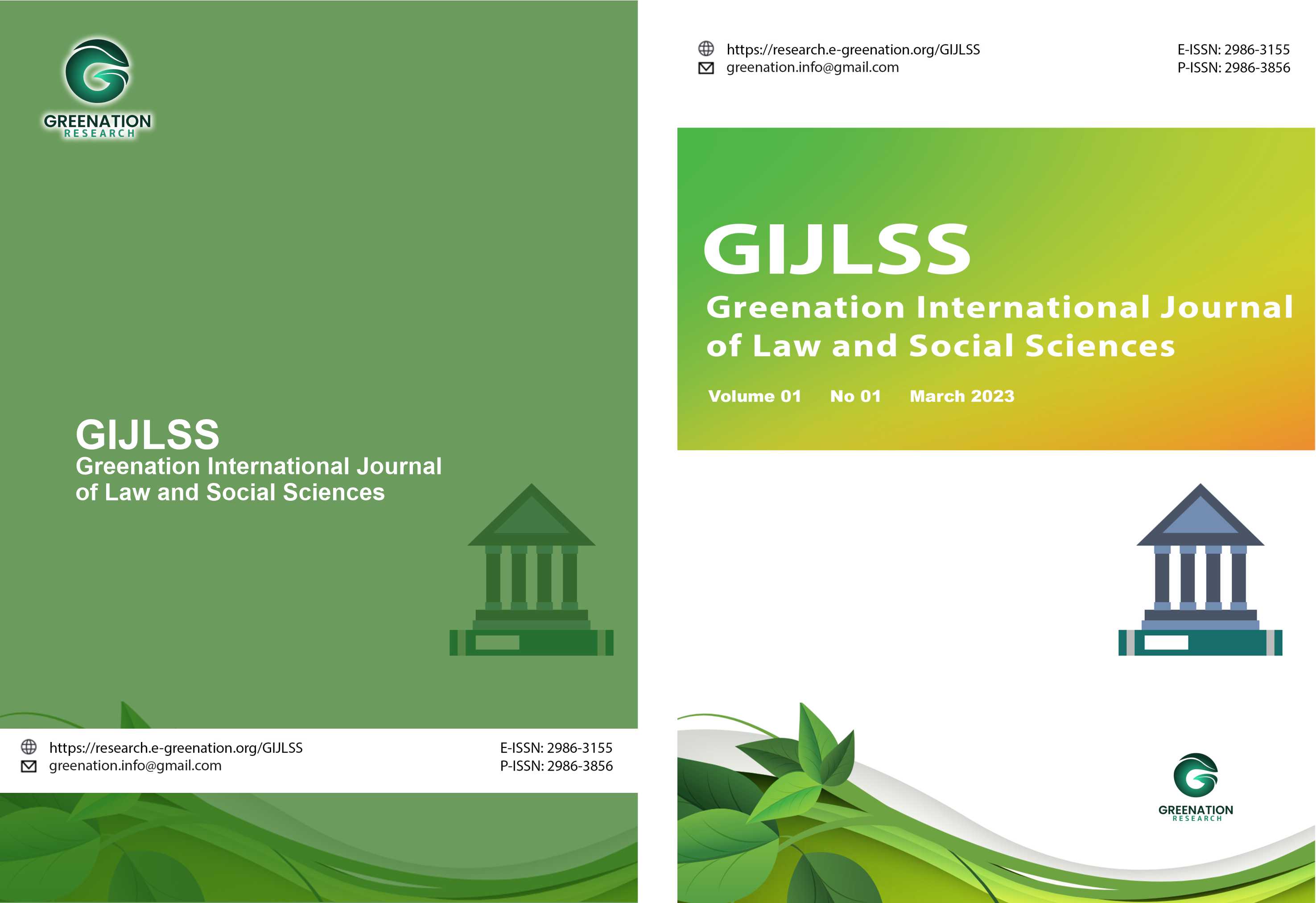Uncertainty of Locus Delicti and Tempus Delicti as an Obstacle to Law Enforcement against Cybercrime
DOI:
https://doi.org/10.38035/gijlss.v3i2.404Keywords:
Cyber Crime, Locus delicti, Tempus DelictiAbstract
Uncertainty in determining the locus delicti (place of the crime) and tempus delicti (time of the crime) is a major challenge in law enforcement against cross-border and anonymous cybercrime. The nature of cybercrime that utilizes technology, such as encryption, VPN, and servers spread across various jurisdictions makes it difficult to determine the exact location and time of the crime, thus hampering the investigation, evidence, and effective law enforcement. Inaccuracy in determining these two aspects can confuse the application of jurisdiction and slow the handling of cases in the judicial realm. Therefore, regulatory reforms are needed that are more adaptive to technological developments to ensure that the legal system can respond to the dynamics of cybercrime more efficiently. Updating laws that align with international standards, strengthening the capacity of law enforcement in digital forensic investigations, and cross-country cooperation are strategic steps in overcoming this obstacle. With a more flexible and technology-based approach, it is expected that the legal system can adapt quickly to the complexity of cybercrime so that law enforcement can run more effectively and accurately, to provide better legal certainty for all parties involved.
References
Barkatullah, A. H. (2019). Hukum Transaksi Elektronik di Indonesia: sebagai pedoman dalam menghadapi era digital Bisnis e-commerce di Indonesia. Bandung: Nusamedia,.
Budiyanto. (2025). Pengantar Cybercrime dalam Sistem Hukum Pidana di Indonesia. Banten: Sada Kurnia Pustaka.
Dahlan, A. (2024). Literasi digital akademik. Makassar: TOHAR MEDIA.
Darmawan, S., & Kadir, N. A. (2021). ANALISIS TERHADAP DISPARITAS PUTUSAN HAKIM DALAM TINDAK PIDANA PEMBUNUHAN BERENCANA (Studi kasus Putusan Nomor 1608/Pid. B/2019/PN Jkt. Utr dengan Putusan No. 70/Pid. B/2016/PN. Kla). JCA of Law .
Dinda, A. L. (2024). Efektivitas Penegakan Hukum Terhadap Kejahatan Siber di Indonesia. AL-DALIL: Jurnal Ilmu Sosial, Politik, dan Hukum , 69-77.
Ferdiansyah. (2018). Analisis Aktivitas dan Pola Jaringan Terhadap Eternal Blue & Wannacry Ransomware. JUSIFO (Jurnal Sistem Informasi), 37-48.
Kartiko, N. D. (2024). Juridical Analysis of Interim Decisions in Cases of Embezzlement in Office: Case Study of Decision Number 664/Pid. B/2013/PN. Jkt. Sel. Journal of Legal and Cultural Analytics, 73-88.
Nabila, A. P. (2024). Peran Hukum Internasional Dalam Menanggulangi Cyber Crime Pada Kejahatan Transnasional.". Indonesian Journal of Law, 26-37.
Nurdiani, I. P. (2020). Pencurian Identitas Digital Sebagai Bentuk Cyber Related Crime. Jurnal Kriminologi Indonesia .
Prasatya, A., & Rahmat, D. (2024). PENEGAKAN HUKUM TINDAK PIDANA PENCEMARAN NAMA BAIK MELALUI MEDIA SOSIAL. MALA IN SE: Jurnal Hukum Pidana, Kriminologi, dan Viktimologi, 43-54.
Prasatya, A., & Rahmat, D. (2024). PENEGAKAN HUKUM TINDAK PIDANA PENCEMARAN NAMA BAIK MELALUI MEDIA SOSIAL. MALA IN SE: Jurnal Hukum Pidana, Kriminologi, dan Viktimologi , 43-54.
Purnawinata, D. T. (2021). Aspek Hukum Pidana Dalam Perjudian Secara Online. Jurnal Solusi, 261.
Purwaningsih, R. (2023). Tinjauan Yuridis Terhadap Penetapan Locus Delicti dalam Kejahatan Dunia Maya (Cyber Crime) Berkaitan Dengan Upaya Pembaharuan Hukum Pidana di Indonesia. Mimbar Keadilan, 130-138.
Rasiwan, I. (2023). KEWENANGAN HAKIM DALAM PERSIDANGAN PERKARA PIDANA TENTANG PENAHANAN SAKSI MENJADI TERSANGKA. Bengkulu: Yayasan Sahabat Alam Rafflesia.
Richard, Andri, & Sapan, H. B. (2025). Peran Transformasi Hukum Pidana dalam Mengatasi Kejahatan Siber Berbasis AI dan Geopolitik. Jurnal Retentum, 434-449.
Sari, I. (2023). Perbedaan Bentuk Kejahatan Yang Dikategorikan Sebagai Cyber Crime Dan Cyber Warfare. JSI (Jurnal sistem Informasi) Universitas Suryadarma, 241-260.
Simada, A. (2024). Penentuan Locus Delictie dalam Tindak Pidana Cyber Crime (Merusak dan Mengganggu Sistem Elektronik dan Komunikasi Milik Orang Lain). Locus Journal of Academic Literature Review , 349-361.
Simbolon, T. M., & Gunarto. (2018). Kebijakan Hukum Pidana Terhadap Tindak Pidana Penghinaan Atau Pencemaran Nama Baik Melalui Internet Di Indonesia Sebagai Cybercrime. Jurnal Daulat Hukum .
Suryanagara, A. (2016). Dakwaan Batal Demi Hukum Setelah Pemeriksaan Pokok Perkara Dalam Sidang Pengadilan (Studi Putusan Nomor 19/Pid. Sus/2015/PN. Sim). USU Law Journal, 204-220.
Terisno, P. A. (2019). "Penjatuhan Dua Putusan Perkara Pidana Dalam Suatu Objek Perkara Yang Sama:(Kajian Putusan Nomor 2135 K/Pid. Sus/2016). Indonesian Journal of Criminal Law, 22-32.
Terisno, P. A. (2019). Penjatuhan Dua Putusan Perkara Pidana Dalam Suatu Objek Perkara Yang Sama:(Kajian Putusan Nomor 2135 K/Pid. Sus/2016). Indonesian Journal of Criminal Law, 22-32.
Winarni, R. R. (2016). Efektivitas Penerapan Undang–Undang Ite Dalam Tindak Pidana Cyber Crime. Jurnal Ilmiah Hukum Dan Dinamika Masyarakat.
Downloads
Published
How to Cite
Issue
Section
License
Copyright (c) 2025 Dwi Nugroho Marsudianto, Evita Isretno Israhadi

This work is licensed under a Creative Commons Attribution 4.0 International License.
Copyright :
Authors who publish their manuscripts in this journal agree to the following conditions:
- Copyright in each article belongs to the author.
- The author acknowledges that the Greenation International Journal of Law and Social Sciences (GIJLSS) has the right to be the first to publish under a Creative Commons Attribution 4.0 International license (Attribution 4.0 International CC BY 4.0).
- Authors can submit articles separately, arrange the non-exclusive distribution of manuscripts that have been published in this journal to other versions (for example, sent to the author's institutional repository, publication in a book, etc.), by acknowledging that the manuscript has been published for the first time at GIJLSS.























